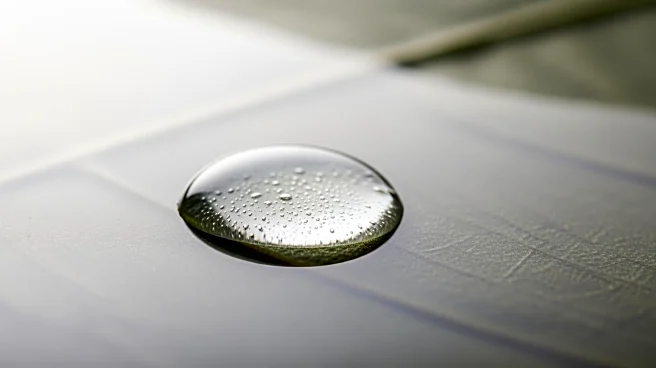What's Happening?
A recent study published in Nature examines various methods for preparing slippery liquid-like polydimethylsiloxane (PDMS) coatings. These coatings are designed to improve surface properties by providing
oleophobic and omniphobic characteristics, which can repel oils and other liquids. The research highlights advancements in creating covalently-attached liquid surfaces that exhibit dynamic behavior, allowing for improved mobility of liquid drops. The study also discusses the potential applications of these coatings in industries requiring non-stick and self-cleaning surfaces, such as food processing and medical equipment. The findings suggest that PDMS coatings can significantly enhance the efficiency of liquid capture and reduce ice adhesion, making them suitable for a wide range of applications.
Why It's Important?
The development of slippery liquid-like PDMS coatings is significant for industries that rely on surface interactions with liquids. These coatings can lead to improved performance in sectors such as food processing, where contamination prevention is crucial, and in medical equipment, where cleanliness and non-stick properties are essential. Additionally, the ability to repel liquids and reduce ice adhesion can benefit transportation and energy sectors, particularly in cold climates. The research provides insights into creating more durable and efficient coatings, potentially leading to cost savings and enhanced product longevity. Stakeholders in these industries stand to gain from adopting these advanced materials, which could lead to innovations in product design and functionality.









